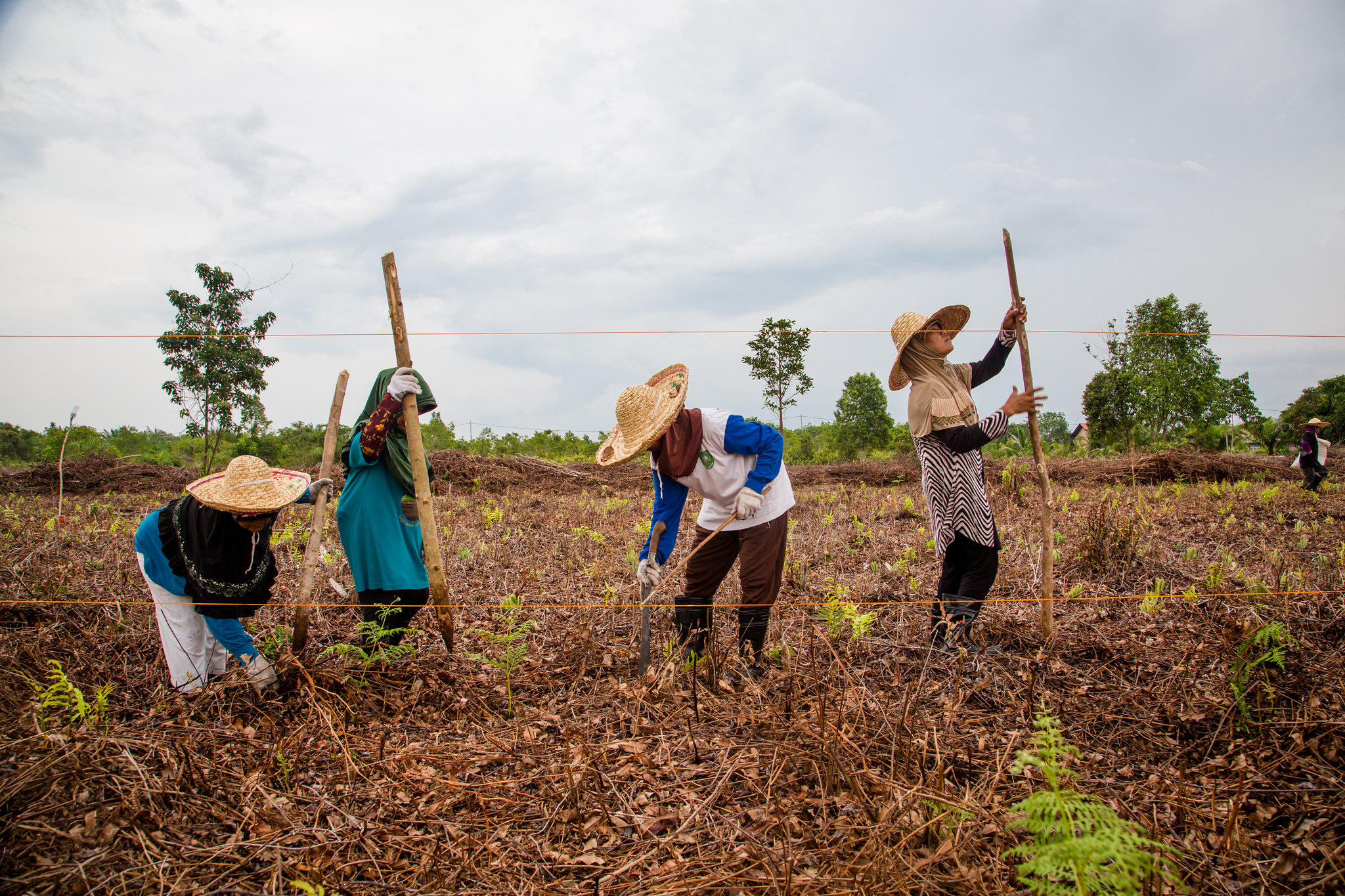
Author: Sandra Cordon, CIFOR | June 14, 2019 | Lessons Learned | Location
Sowing 10,000 pineapple plants is not everyone’s idea of a good time.
But for Meri Andayani and her friends, the opportunity to grow, harvest and sell their own produce is a dream come true. And that dream includes greater prosperity for their families and for their community as these women work to restore and revive a piece of Indonesia’s peatlands that is their home, their livelihoods and their culture.
Those peatlands are also critical to the global fight against climate change.
“We planted those 10,000 plants in five days. We planted the pineapples together with friends, and we’re happy,” Andayani says, her face shaded by a wide-brimmed straw hat identical to those worn by other women in her local farmers’ group. “In the future, we can continue to plant pineapples….we will carry on.”
Adds her colleague Norwati: “Our hope is that we plant pineapples successfully and harvest a lot….I think that we will get a lot of benefits from this later.”
The women’s work, on one of seven large “action arenas”, is part of a project led by Center for International Forestry Research (CIFOR) aptly titled Community-Based Fire Prevention and Peatland Restoration. Doing exactly what it says on the tin, it’s being implemented around the village of Dompas in Indonesia’s Riau Province, on the central eastern coast of Sumatra.
The project was conceived in the aftermath of Indonesia’s devastating 2015 wildfires, which in addition to destroying vast tracts of tropical rainforest, is believed to be the cause of 100,000 premature deaths. Having drawn up action arenas – each about three to four-square hectares in size – the community restores the landscapes to produce a variety of crops, liberica coffee, rubber, coconuts, fish, as well as pineapple.
Tree-planting, including the relatively rare agarwood, has resumed as well.
Although growing crops and livelihoods is important, at the core of the entire project is raising awareness of the value – for the communities and the global environment – of fire-free peatlands restoration work.
Key activities in these action arenas include training local farmers to prepare the land for planting without fire, constructing fencing, applying fertilizers and learning how to monitor moisture and water levels in peatland and trees to better understand agroforest conditions to avoid accidental fires. The training will ensure that these activities can continue long after the experts have gone, says project leader and CIFOR scientist Herry Purnomo.
“This is a real experience of what happens when you don’t burn, and also when you work on peatland restoration and on understanding the market situation and improving the community’s livelihoods,” adds Purnomo, whose project partners include the University of Riau. The intention is to scale-up the project to regional and national levels, supported by guidelines this project will help to establish.
Burning to clear land has been a traditional practice in parts of Indonesia, but efforts to end the practice have been stepped up since 2015’s massive, uncontrolled and deadly forest and land fires in Indonesia that destroyed more than 2.6 million hectares of land and created losses totalling over $16 billion USD, according to the World Bank.
People remember very well the devastation caused by those fires and are adamant they don’t want a recurrence, says Nurma, another member of the women’s pineapple producers’ group. Memories of those fires causes a great deal of stress, she says, and some who had previously tried tree planting but lost all during the fires have become discouraged, “they don’t want to plant any more”.
But now, thanks to the CIFOR-led project, land that had become idle and derelict is being restored, she said. That’s important for sustainability of the entire area, which has a history of recurring fires. As a result, a significant element of the work involves training sessions on rewetting the peatland by blocking a small canal and creating a perigi – a locally engineered, multifunctional small pond. Rewetting aims to hydrologically rehabilitate peatland to its nearly natural state.

